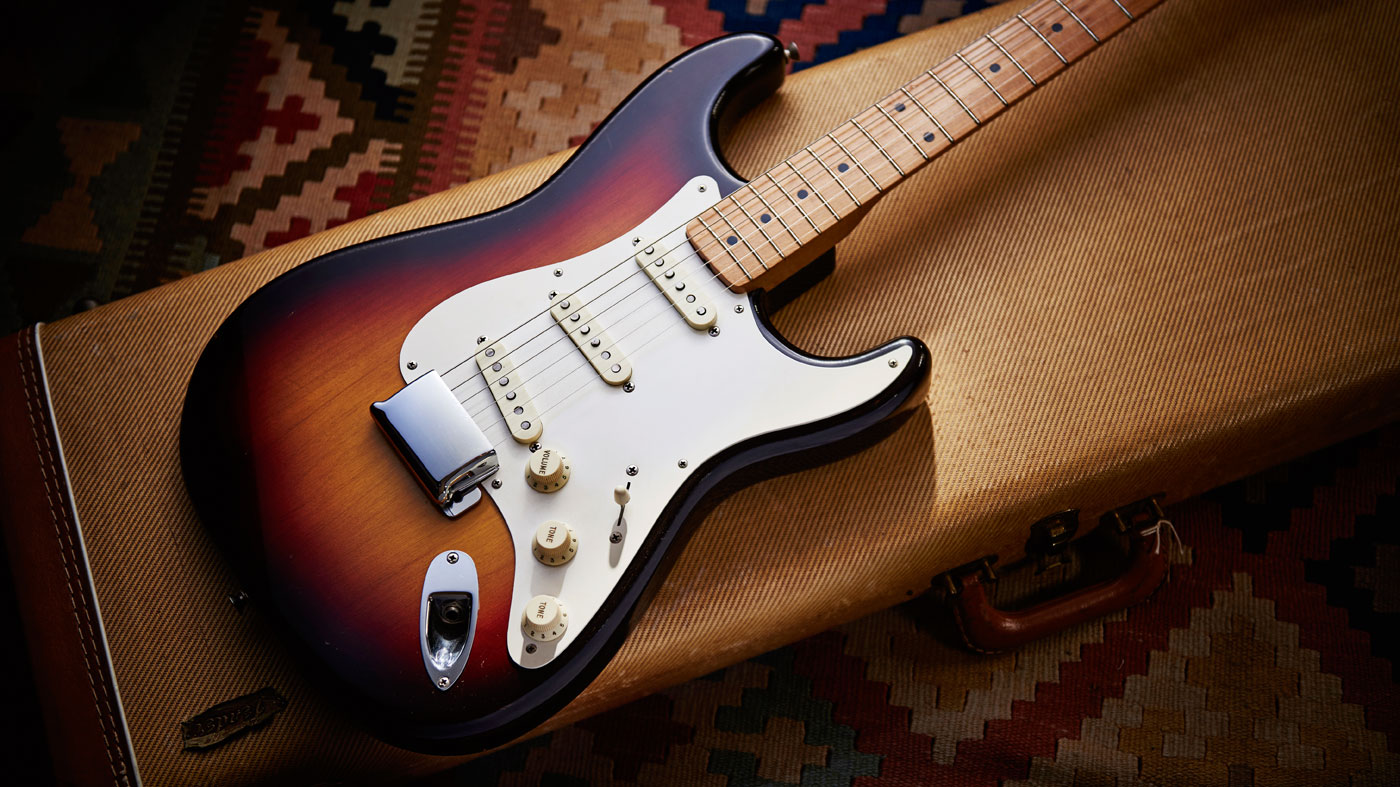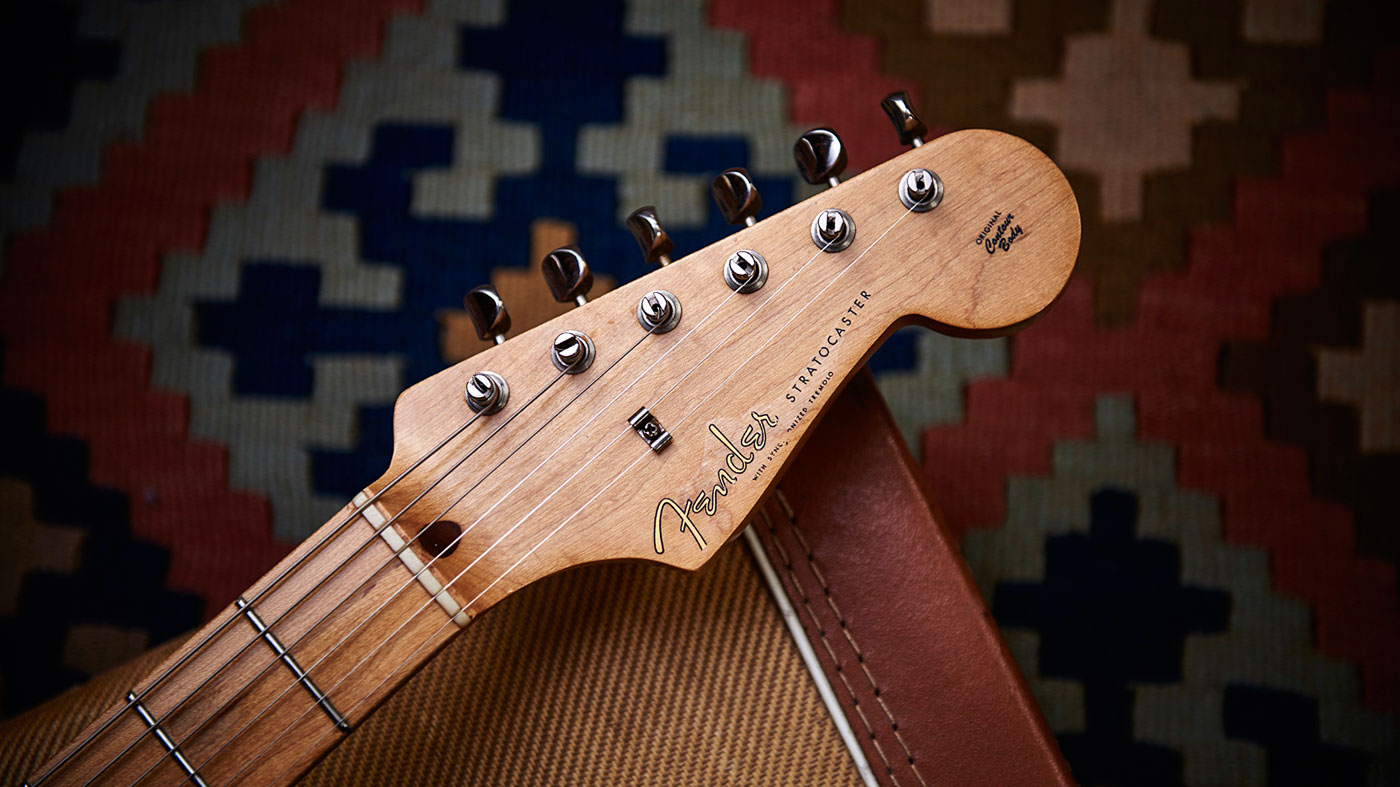
Want all the hottest music and gear news, reviews, deals, features and more, direct to your inbox? Sign up here.
You are now subscribed
Your newsletter sign-up was successful
We’ve seen ’58 Strats before, of course, but few of them have been this clean. If someone told us this was a Fender Custom Shop reissue, we’d have no reason to doubt them - at first, anyway.
After all, the white bits are still resolutely white and the tuners still look shiny and minty fresh. All we can think is that this guitar must have been hidden away and treated with loving care during its lifetime, making it a prime catch for some enterprising individual on the collector market.
Aside from the pristine sunburst finish, even the ‘ashtray’ bridge cover has survived the past 60 years, as well as the original tweed case
Many people will agree that planet earth must have passed through a comet’s tail or some other kind of equally mysterious astronomical event in 1958. That particular year saw Gibson’s Les Paul enter its most celebrated phase and many feel that this was the time that Leo’s Fullerton factory was sending out some of the best Stratocasters from that particular decade.
Aside from the pristine sunburst finish, even the ‘ashtray’ bridge cover has survived the past 60 years, as well as the original tweed case. The rest of the spec from a late-50s model is virtually every Strat lover’s mantra: an alder body, maple neck/fingerboard, a trio of single coil pickups, three-way switch, plastic knobs and scratchplate…
This is also an early example of Fender’s switch to three tone sunburst - which happened in mid-1958 - the red here having faded slightly, rounding off the livery of this very special and rare beast.
Body
From 1954 until mid-1956, Strat bodies were made from ash. Alder was used from then on with the more highly figured ash being retained only for blonde translucent and some custom-colour finishes.
Finish
Earlier Strats were finished in two-tone sunburst - essentially yellow to black. A third colour - red - was introduced mid- 1958 and became the standard sunburst finish from then on. Owing to an instability in the first paint Fender used, the red was prone to fading - but this example still retains its ruddy hue.
Want all the hottest music and gear news, reviews, deals, features and more, direct to your inbox? Sign up here.
Headstock
Decal (with no patent numbers) on top of the lacquer, Kluson split tuners and walnut truss rod ‘plug’ - the archetypal ’58 Strat peghead.

Pickups
Six staggered Alnico V polepieces - the different heights were intended to maintain an even response across the strings - appeared on Strat pickups until 1974, when flat polepieces became the norm.
Controls
The standard master volume, tone (middle pickup), tone (neck pickup) confi guration with a CRL 1452 three-way selector switch (the fi ve-way not becoming standard until 1977) and under-thehood cloth-bound wiring and a partial shielding plate to ward off unwanted electrical interference.
Bridge
The Strat’s so-called ‘ashtray’ bridge cover got its name from the fact this is what the chromed metal artefact was often used for by studio players of the day!
Pickguard
Another telltale feature of a 50s Strat is the eight screw single-ply pickguard. Originally made from Bakelite on launch in 1954, white plastic was used from 1955 (with some models boasting anodised aluminium between 1954-58), subsequently changing to three-layer celluloid in 1959.
We would like to thank Vintage ’n’ Rare Guitars, Bath for allowing us access to this particularly fine specimen.
Guitarist is the longest established UK guitar magazine, offering gear reviews, artist interviews, techniques lessons and loads more, in print, on tablet and on smartphones
Digital: http://bit.ly/GuitaristiOS
If you love guitars, you'll love Guitarist. Find us in print, on Newsstand for iPad, iPhone and other digital readers


